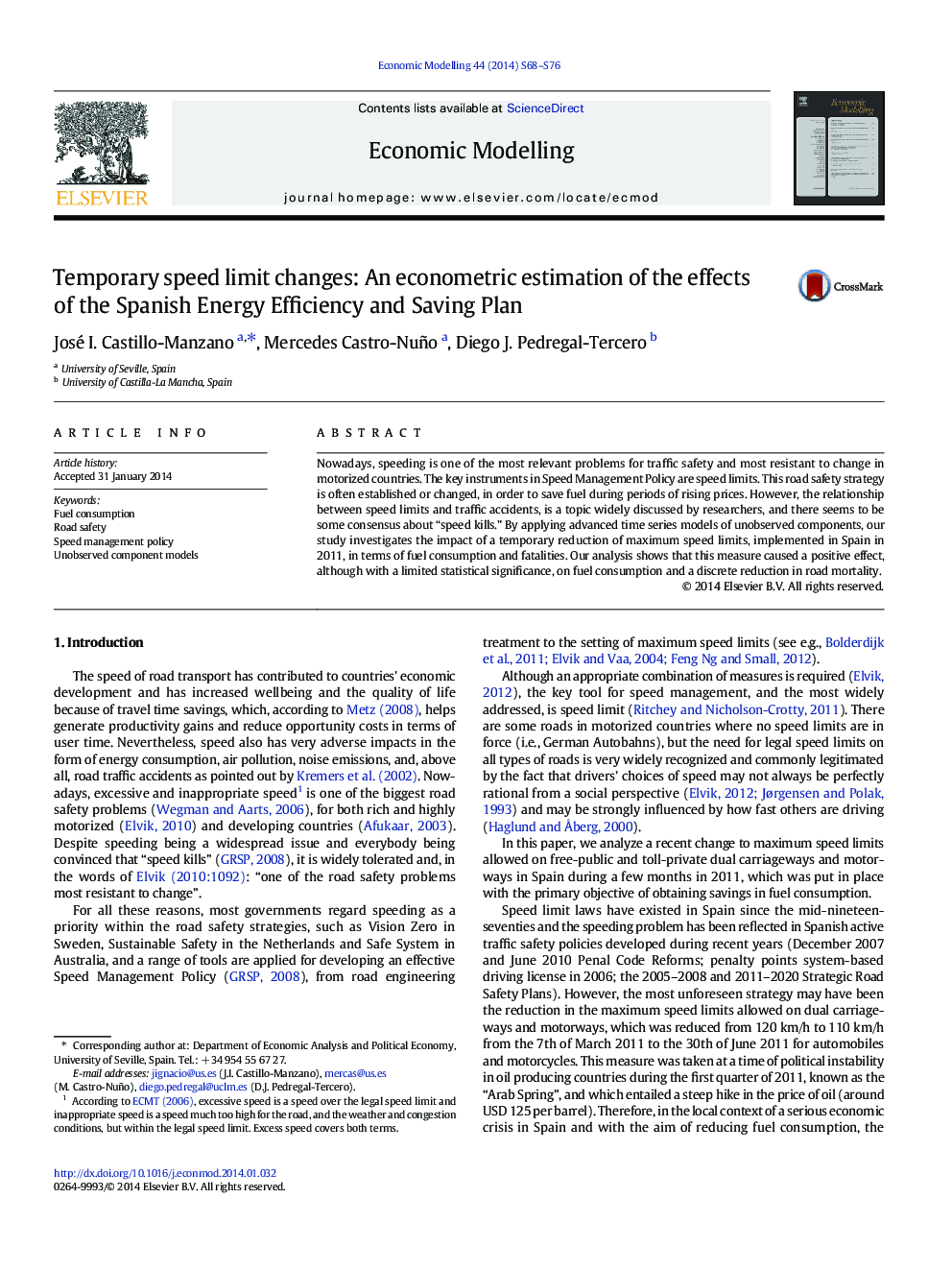| Article ID | Journal | Published Year | Pages | File Type |
|---|---|---|---|---|
| 5054104 | Economic Modelling | 2014 | 9 Pages |
Abstract
Nowadays, speeding is one of the most relevant problems for traffic safety and most resistant to change in motorized countries. The key instruments in Speed Management Policy are speed limits. This road safety strategy is often established or changed, in order to save fuel during periods of rising prices. However, the relationship between speed limits and traffic accidents, is a topic widely discussed by researchers, and there seems to be some consensus about “speed kills.” By applying advanced time series models of unobserved components, our study investigates the impact of a temporary reduction of maximum speed limits, implemented in Spain in 2011, in terms of fuel consumption and fatalities. Our analysis shows that this measure caused a positive effect, although with a limited statistical significance, on fuel consumption and a discrete reduction in road mortality.
Related Topics
Social Sciences and Humanities
Economics, Econometrics and Finance
Economics and Econometrics
Authors
José I. Castillo-Manzano, Mercedes Castro-Nuño, Diego J. Pedregal-Tercero,
